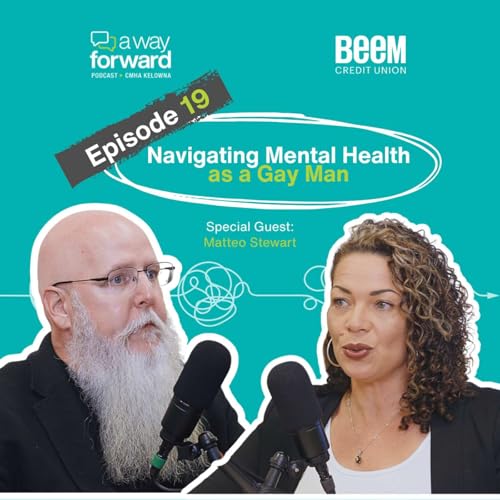In this episode of A Way Forward, host Jessica Samuels is joined by CMHA Kelowna CEO Mike Gawliuk and Katie Bransfield, Director of Consumer Banking at Beem Credit Union, for a candid and practical conversation about how relationships, finances, and mental health intersect.
Money is one of the leading stressors for individuals and couples across Canada — yet it remains one of the hardest things to talk about. Together, the panel explores how to bring openness, safety, and teamwork into conversations about money, and why doing so can strengthen both your relationship and your mental well-being.
What We Cover in This Episode:
What is financial compatibility?
Katie explains why compatibility isn’t about equal income — it’s about aligned values, spending habits, expectations, and long-term goals. Understanding each other’s “money mindset” helps reduce conflict and build trust.
Why money conversations feel so hard?
Shame, past experiences, family teachings, and even unspoken expectations all shape how we interact with finances. Creating a safe, judgment-free space is essential.
How to talk about money with your partner
Practical guidance from Katie on:
Choosing the right moment
Starting with curiosity
Being transparent about income and debt
Discussing spending styles, lifestyle expectations, and shared financial plans
Checking in regularly as a team
Debt: Red flag or normal part of life?
Debt itself isn't the issue — secrecy is. Katie outlines how transparency and a realistic repayment plan matter more than the number itself.
Navigating income disparity
Couples don’t need to earn the same amount to be financially compatible. What matters is shared values, open communication, and agreeing on how to manage resources together.
When to seek outside support
Financial institutions and professionals can provide clarity, structure, and reassurance. Mike reinforces that reaching out for help — financial or mental health — is a sign of strength, not failure.
The mental health impact of financial stress
Mike shares insight and data on how finances affect well-being:
41% of Canadians name money as their biggest stressor
Nearly half lose sleep over financial concerns
Shame and stigma are major barriers to seeking help
He also highlights everyday mental health strategies: noticing changes in mood or sleep, staying connected socially, exercising, and reaching out for professional support when needed.
Key Takeaways:
Start the money conversation early and often.
Transparency builds trust — secrecy breaks it down.
You don’t need identical money styles, just shared understanding and a joint plan.
Financial stress impacts mental health, and mental health impacts financial decision-making.
Seeking support from financial experts or mental health professionals can make a significant difference.
Approach finances as a team: same goals, same direction, shared understanding.
Resources & Links:
For mental health resources, financial wellness tools, or past episodes, visit the A Way Forward podcast page at cmhakelowna.org.
Have questions or suggestions? Email us at awayforward@cmhakelowna.org
.
Episode Sponsor
This episode is supported by Beem Credit Union. With deep roots in BC and a commitment to your financial wellness, Beem proudly backs conversations that help build stronger, healthier communities.
 14 分
14 分 2025/11/1919 分
2025/11/1919 分 37 分
37 分 2025/10/2432 分
2025/10/2432 分 2025/10/0932 分
2025/10/0932 分 2025/09/2430 分
2025/09/2430 分 2025/06/1123 分
2025/06/1123 分 2025/05/1425 分
2025/05/1425 分
